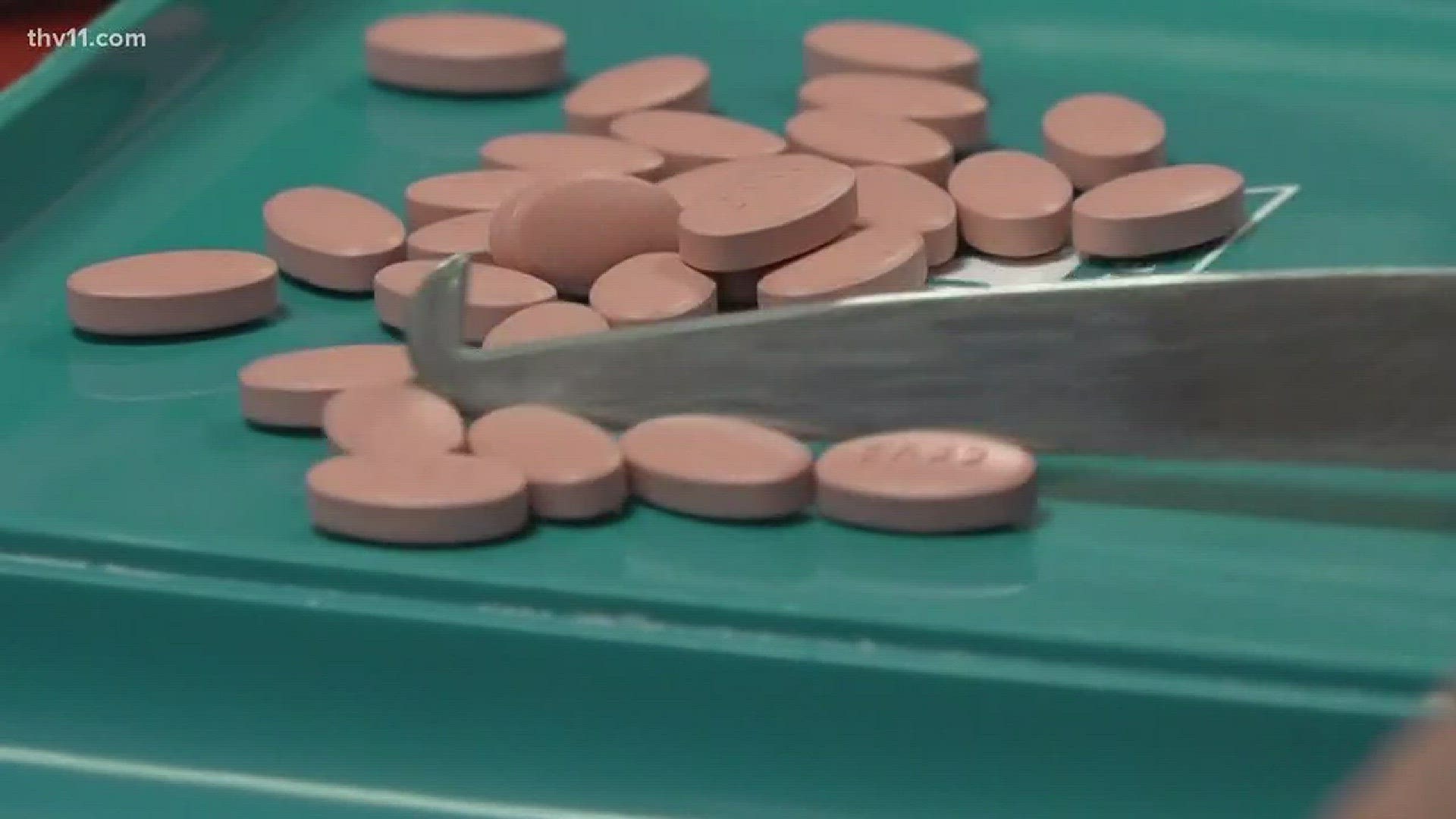LITTLE ROCK, Ark. (KTHV) — Governor Asa Hutchinson announced Monday that he will call a special session of the state legislature.
His call is expected to contain two topics: regulation of prescription benefit managers and alterations to the state’s open container law.
Senate President Pro Tem Jonathan Dismang (R-Searcy) and House Speaker Jeremy Gillam (R-Judsonia) sent letters to Hutchinson last week to ask for a special session. They wrote that they want the Arkansas Insurance Department to assume regulatory power over pharmacy benefit managers, or PBMs.
“There’s not a comfortable mechanism for enforcing Arkansas law at the present,” Hutchinson explained during a Monday afternoon news conference. “The Insurance Department does not have that authority, and so the oversight, the investigative capability of the insurance department, in regards to Arkansas law, I think, is an important matter for the future. And certainly, the pharmacists believe that’s an urgent matter, and I would concur with that.”
“There’s needs to be a regulatory body over the PBMs,” said Dr. Terry Perkins, a pharmacist who runs Medicine Man Pharmacy. “If they’re going to do business in Arkansas, then we need some Arkansans looking over their shoulder.”
Perkins is one of many independent pharmacists who have voiced strong concerns in recent weeks about the lack of oversight of PBMs in Arkansas.
“But it’s not about, ‘we’re angry because we’re not making as much money,’” he explained. “It’s, ‘we’re angry because we’re being robbed.’”
PBMs are companies that act as middle men between health insurers and pharmacies. They negotiate reimbursement rates for prescriptions, process claims, organize mail-order deliveries, and more. A couple of companies handle most of the patients in the American health care system, giving them significant power over smaller pharmacies.
While the law says they cannot force pharmacies to take a loss on prescription reimbursements, Perkins said that is often the case. In January, he explained, he billed approximately 500 claims through Arkansas Works, and more than 300 of those were below cost. Because pharmacies must sign contracts with PBMs or risk losing large portions of their customer base, Perkins said there is nothing he can do to recover those lost profits.
“That’s not supposed to happen, but it does. And it’s been happening for over 20 years,” he added. “It’s just now getting a whole lot worse. This year’s been the worst that I’ve ever seen.”
Perkins estimated that many small pharmacies would shut down by the end of the year if no action is taken to reign in the PBMs.
“If it doesn’t happen, then little stores like mine are going to shut down,” he said. “You can’t fill 500 scripts and take a loss on 300 of them and stay open for business. I’d make more money selling donuts.”
“We’re a rural state. Independent and local pharmacists are very important,” Hutchinson said. “If they’re not getting reimbursed at the proper rate and they go out of business, that’s a problem for our state.”
Hutchinson said he believes there is a consensus in the General Assembly about how to regulate the PBMs, though the exact bill has not been written yet. Arkansas would become the first state to put additional regulations on PBMs, though Hutchinson said others are considering it.
“Yes, we’ve put pressure on the carriers to control costs,” he said, “and we’re asking them now to make sure that’s balanced, as to who absorbs some of those cost-control efforts.”
Arkansas finally passed an open container law in 2017, but Hutchinson agreed with Dismang and Gillam that it needs to be rewritten.
According to federal statute, money from Washington that would otherwise subsidize highway projects can be diverted to drunk-driving enforcement programs. Danny Straessle, a spokesman for ARDOT, said Arkansas is set to lose $12 million in the coming fiscal year if the wording is not changed by Oct. 1.
The federal incentive began in 2001, so Arkansas has missed out on tens of millions of dollars in that time.
Straessle said there are three fixes that must be made to bring Arkansas’s law into compliance with the federal requirements. State legislators need to define what an alcoholic beverage is, delete an exemption for a container within a person's reach but in a locked compartment, and make the law apply to all vehicles located on a highway or public right-of-way, whether they are moving or not.
One issue Governor Hutchinson said will not be in the special session: enhanced concealed carry licenses. Some lawmakers want to ban permitholders from bringing guns into college dorm rooms; others want to remove requirements that all firearms instructors offer both the regular concealed carry course and the course for the enhancement.
“This special session is not about gun legislation,” Hutchinson said emphatically.
The current fiscal session is expected to last until mid-March. Hutchinson said the special session would begin soon after that, but he has not set a precise date.

